

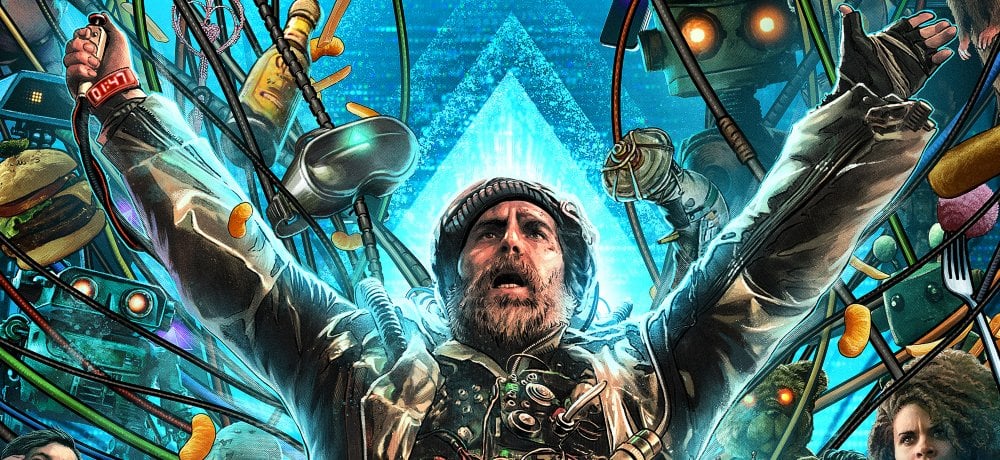
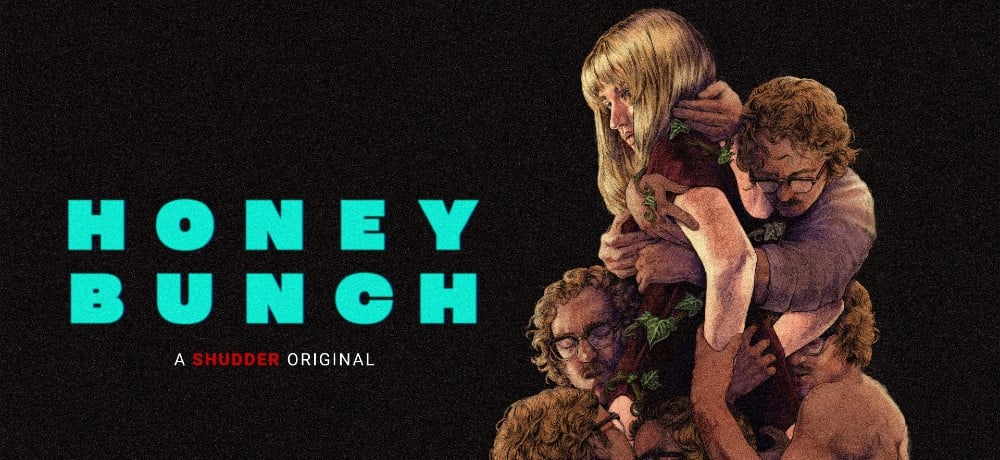
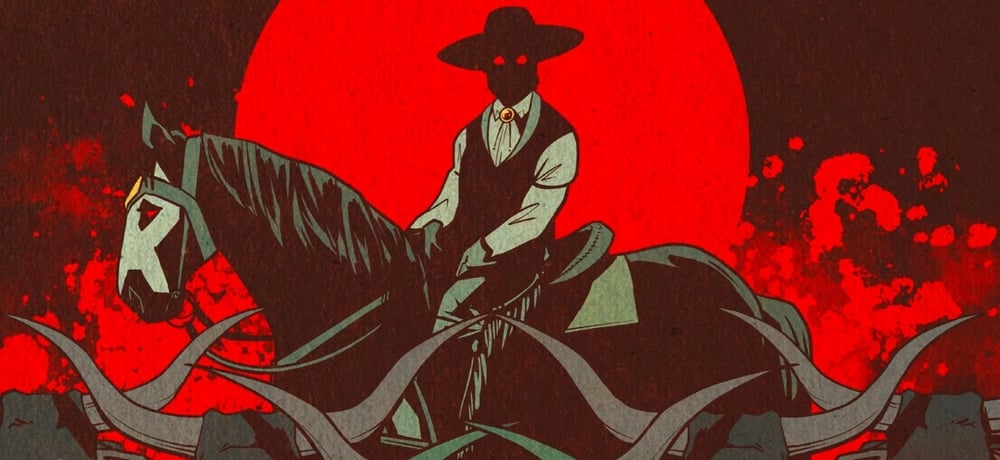
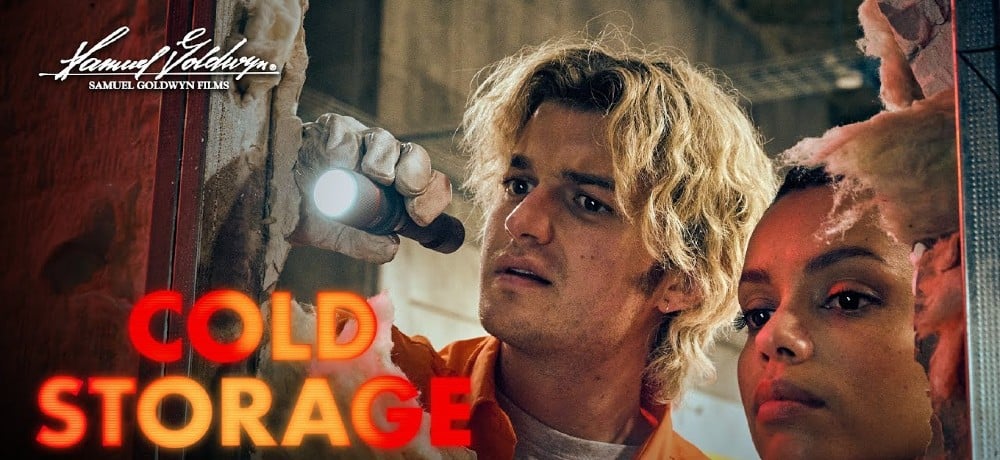
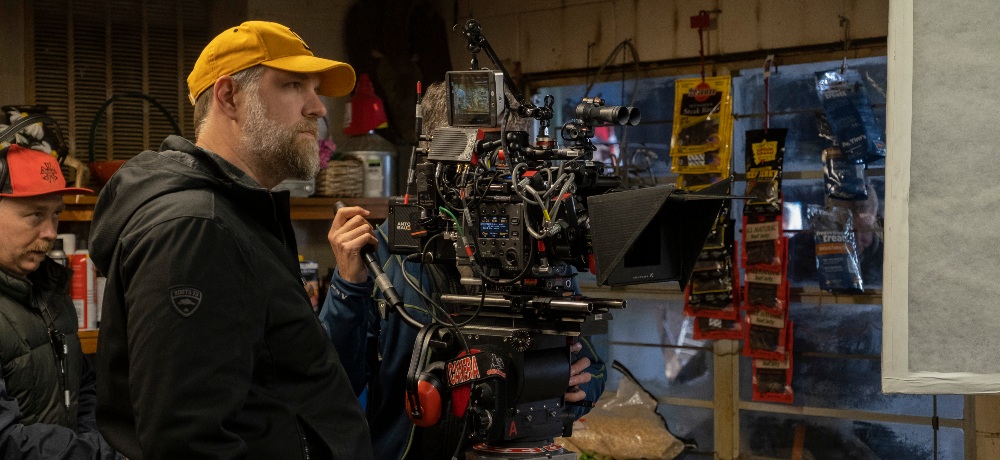
While the platform to target people with different political views has drastically changed since The Most Dangerous Game was released almost a century ago, the basic human condition has remained the same. The Hunt, which was inspired by Richard Connell's classic short story, and is one of the year's most controversial horror films, is now in theaters nationwide.
Director Craig Zobel's horror thriller satirizes the current hostile political climate in the U.S. In The Hunt, “Twelve strangers wake up in a clearing. They don’t know where they are, or how they got there. They don't know they've been chosen… for a very specific purpose… The Hunt.
In the shadow of a dark internet conspiracy theory, a bunch of elites gathers for the very first time at a remote Manor House to hunt humans for sport. But the elites’ master plan is about to be derailed because one of the hunted, Crystal (Betty Gilpin), knows The Hunters’ game better than they do. She turns the tables on the killers, picking them off, one by one, as she makes her way toward the mysterious woman (Hilary Swank) at the center of it all.”
Daily Dead recently had the opportunity to speak with Zobel, and he discussed that he was drawn to direct Damon Lindelof and Nick Cuse's script because he appreciated their take on how in modern American society, people are quick to judge others, even before getting to know their beliefs. The veteran genre filmmaker also talked about how he wanted Gilpin to play Crystal after working with her on television, because he knew she could effortlessly bring the modern-day action hero to the screen.
Thanks for taking the time to speak with us, Craig. The Hunt is a timely and provocative new satirical thriller about the class divide in modern American society. Why were you interested in directing the horror film? How involved were you in collaborating with the movie's screenwriters, Damon Lindelof and Nick Cuse?
Craig Zobel: I had worked with Damon and Nick on the TV show The Leftovers for a few seasons. We had become really good collaborators, and I felt that we had learned how to work together super well. We ended The Leftovers saying, "Okay, well we definitely need to do something again soon, and it'd be great if it was a feature."
They came back a little while later and were like, "Hey, what about this feature? This is what we've been thinking about a bunch. It's about internet conspiracy theories, and what if the most outlandish thing that you believed about something was actually true?"
They presented that to me, and it dovetailed with what I had been fascinated with at that point. I was just thinking about how quick we are to judge people, and make assumptions about what their beliefs are, based on what groups we think they're in, even if we have no proof that they're in that group. That was something totally worth satirizing.
Speaking about those modern internet conspiracy theories, the story powerfully reflects on those ideas. What was that experience like of bringing those theories to the screen, and balancing the satire with how serious some of these conspiracies are overall?
Craig Zobel: I think it's interesting because I'm sure somewhere someone is trying to make the Pizzagate movie. But I'm not sure that it will really address what Pizzagate was about, or how strange it was. We felt like we needed to take a step back and make the movie more satirical, in order to really reflect on it, and what we found to be the most interesting.
The movie is interesting in the fact that in the beginning, it presents the story from the perspectives of several of the captives, before revealing that Crystal is ultimately the main character. How did you build the point of views of Crystal, who's not a typical protagonist in this type of story?
Craig Zobel: It was fun because there was a unique sense in how we were trying to introduce them. We wanted to have the audience really believe and invest in various people as the heroes of the movie. In that way, it was really an interesting and challenging experience.
The Hunt features a fantastic ensemble cast, including Betty Gilpin as Crystal. How did you decide to cast Betty?
Craig Zobel: I had worked with Betty previously on a TV show called American Gods. I was familiar with her, having worked with her for a few days, and I found her to just be such an inventive, smart actor.
I was really excited because she was my first choice to bring the movie to. I also thought that because she'd been on GLOW, and had done some real physical work on that series, that she would be a perfect choice for the film.
In making the character with her, we had so much fun. It was truly one of the more exciting experiences I've had in doing this job. We were trying to create someone who was a modern-day action hero, as well as a pretty big weirdo and a unique character.
Speaking of the fact that Betty has done physical action in projects like GLOW, The Hunt is driven in large part by its exhilarating stunt work. What was your experience collaborating with the film's stunt team to create the action sequences?
Craig Zobel: That was one of the most exciting parts of getting to make this movie; creating these actions sequences was fun. I wanted to make sure that I was trying to do something that felt current, and didn't feel derivative, but still held the tone that the rest of the non-action parts of the film also had. We were looking to try to make sure that the whole thing had a sense of playfulness to it.
Besides the action and horror-driven elements, the film also features a great sense of humor to lighten the overall mood of the story. What was the experience like of balancing the horror with the comedy within the plot?
Craig Zobel: Yes, we were really trying to make sure that the film had a lot of humor in it. I had said that if we're going to make something that was about divisiveness inside of our modern culture, that the only way to do that would be with humor and fun. It was an objective of mine the whole time, and really led a lot of the decision-making of the film.
Besides the stunts, another fantastic visual aspect of the movie is its camerawork. How did you work with your director of photography, Darran Tiernan, to determine how you would bring this world to the screen?
Craig Zobel: The DP, Darran Tiernan, is a person I've worked with a lot. We have done a bunch of different kinds of things together, and both of us felt that we had done some things that intentionally had a retro feeling.
We had also worked in different television shows together. We'd done the “Shogun World” episode of Westworld, which was intentionally referencing old samurai films.
So our main goal for this particular project was to make something that felt as current, new, and fresh as we could. We moved the camera around a lot, and tried to push ourselves in that way. This felt like what an action movie in 2020 should be.
The Hunt features fantastic sets on the location where you shot in New Orleans. What was your experience filming in and around the rural mansion where the story's set?
Craig Zobel: We shot the film in February and March. At that time, it was still very brown and gray, like a lot of places in America, just by virtue of being the end of winter.
We pursued going down to New Orleans, primarily so that we could be in a place where the weather had already turned. It was really important to me that it not feel like this spirity movie, like The Road. I wanted it to feel brighter, in terms of the look. So we settled in New Orleans, and were able to find all of the locations that we could turn around there.
Jason Blum produced The Hunt for his production company, Blumhouse Productions, which is known for creating such politically driven horror films as Get Out and The Purge franchise. What was your experience collaborating with Jason and the company on the development of the story?
Craig Zobel: He's quite an inspiring and cool guy to work with. It was a great experience.
With horror films like this one, the music is just as important in creating the scares as the visuals. What was the experience like of figuring out how you wanted to score the movie?
Craig Zobel: As far as the score for this film, we were interested in trying to make it have a sense of play. We felt like we were doing that with some of the action and violence in the movie, and thought we should try to play opposite that. We wanted to have the score support the film, but also be fun and playful at the same time.
---------
In case you missed it, visit our online hub to check out our previous coverage of The Hunt, including Heather Wixson's review.